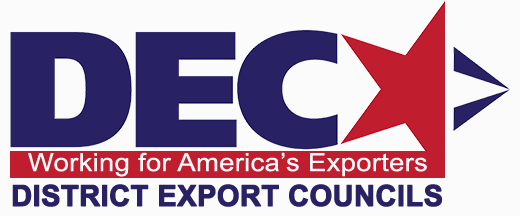Freight forwarders are key members of your international team. If chosen carefully, a forwarder will help you manage your export shipments and make your business venture successful.
What part do they play in the international transaction?
- Assist with freight quotes and costs of international shipping.
- Provide an itemized list of costs.
- Arrange for booking space for freight on airlines, vessels and other modes of transport.
- Consolidate shipments from different suppliers.
- Provide a shipper with the foreign destination’s documentary requirements.
- Prepare shipping documents, banking and other collection papers necessary in the transaction.
- Process shipping documents and handles certification and legalization procedures, when necessary.
- Distribute documents to the necessary parties in the transaction – banks, offices, buyers, suppliers, etc.
- Arrange for insurance coverage, if needed.
- Arrange for U.S. and/or foreign customs clearance and pre-shipment inspections, if necessary.
- Provide facilities for warehousing in foreign destinations.
- Provide information on hazardous materials, if needed.
- Provide other specialized services, if needed.
Points to consider when choosing a freight forwarder
General Information about the company
- Is the company a full-service freight forwarder?
- Staff experience and size.
- Years in business and what are their business hours?
- Does the company specialize in certain commodities and shipping methods?
- Is company certified to handle hazardous shipments?
- Weekly tonnage to various cities, and countries.
- Support services: experienced in handling letters of credit.
- Other charges: is there a charge for faxes and other incidentals?
- What are charges for documentation handling, local and destination handling charges, and banking?
- What are future growth plans?
- Do they have warehouse facilities and what type of security is available for those facilities?
- Communications between offices: are foreign offices as dependable as the local office?
Global Capability – What services are available globally. In which countries are they strong. Do they have:
- Agent or foreign owned facilities?
- Bonded warehousing facilities?
- Packing functions such as JIT and pick-and-pack, administrative functions such as invoice capabilities, where are the international locations?
- Where are they weak?
Price – how is price determined?
- Flat rate?
- Volume price breaks.
- Based on total weekly commitment.
- Seasonal increases.
- What are fuel and storage charges?
Transit times
- Percentage of on-time deliveries.
- Money back guarantee.
- Alternative shipment methods and pre-alert notifications.
Allocations with airlines, trucking, etc.
- What is the tonnage per week?
- Daily or weekly consolidations?
- How many of the weekly consolidations have extra space?
- Is charter service available in peak seasons, i.e. Christmas?
- Top 3 preferred carriers (Air), if needed.
- Inland carriers are utilized to and from what cities?
- Transit time, direct or cross-dock – on truck and off loaded?
Computer/EDI capabilities
- Is the forwarder capable of connecting to a shipper’s company, bank, and/or other parties in the transaction?
- Are they filing SED’s on the Automated Export System (AES)?
- Any future plans for electronic transmission of documents?
- Are they a member of C-TPAT (Customs Trade Partnership Against Terrorism) program?
Insurance
- Cost of insurance.
- Availability of insurance policy photocopy.
- Specifics of coverage available.
Experience with certain types of products and transactions
- Returns and repairs.
- ATA Carnets.
- Temporary import bonds.
- Drawback program.
- Palletizing, crating and handling of cargo.
- Sensitive to damage and other packing issues.
- Hazardous material regulations.
Invoicing options
- Do they have monthly billing?
Industry references
- Ask for references from freight forwarders.
- Interview a number of freight forwarders and ask to visit their facilities.
- Negotiate rates based on services the company will use.
What a freight forwarder expects from a company they represent
General information about the company
- Company information – contacts, phone numbers.
- Product information – special handling, packaging, etc.
- Export licensing and clearance information for AES filing.
- Power of Attorney or individual shipment authority.
What services will the company require?
- Special types of delivery needs.
- Volume the company will be shipping.
- Letters of credit transactions.
- Documentation needs – preparation and legalization.
- Marine insurance.
- Consolidations.
- Warehousing.
- Special shipments – drop shipping to certain customers.
- Will the company be processing ATA carnets?
- Temporary import bonds.
- Labeling and marking.
The company will involve the forwarder early in the transaction and early in the planning process for expansion efforts.
- The freight forwarder must know the parties to the transaction. If the transactions involve letters of credit, the forwarder must have a copy or the original so documents can be prepared exactly as needed to comply with the letter of credit.
- Involve the forwarder early in the process if the product needs special crating, handling, consolidating and/or any other type of special service.
- If warehousing, JIT, pick-and-pack services are needed in other countries, ask your forwarder about these special needs.
- If new strategies involve moving some of the production to other countries, contact the forwarder for services they can provide very early in the planning process.

